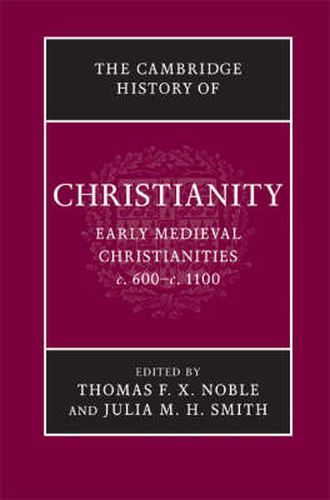Readings Newsletter
Become a Readings Member to make your shopping experience even easier.
Sign in or sign up for free!
You’re not far away from qualifying for FREE standard shipping within Australia
You’ve qualified for FREE standard shipping within Australia
The cart is loading…






The key focus of this book is the vitality and dynamism of all aspects of Christian experience from late antiquity to the First Crusade. By putting the institutional and doctrinal history firmly in the context of Christianity’s many cultural manifestations and lived formations everywhere from Afghanistan to Iceland, this volume of The Cambridge History of Christianity emphasizes the ever-changing, varied expressions of Christianity at both local and world level. The insights of many disciplines, including gender studies, codicology, archaeology and anthropology, are deployed to offer fresh interpretations which challenge the conventional truths concerning this formative period. Addressing eastern, Byzantine and western Christianity, it explores encounters between Christians and others, notably Jews, Muslims, and pagans; the institutional life of the church including law, reform and monasticism; the pastoral and sacramental contexts of worship, belief and morality; and finally its cultural and theological meanings, including heresy, saints’ cults and the afterlife.
$9.00 standard shipping within Australia
FREE standard shipping within Australia for orders over $100.00
Express & International shipping calculated at checkout
The key focus of this book is the vitality and dynamism of all aspects of Christian experience from late antiquity to the First Crusade. By putting the institutional and doctrinal history firmly in the context of Christianity’s many cultural manifestations and lived formations everywhere from Afghanistan to Iceland, this volume of The Cambridge History of Christianity emphasizes the ever-changing, varied expressions of Christianity at both local and world level. The insights of many disciplines, including gender studies, codicology, archaeology and anthropology, are deployed to offer fresh interpretations which challenge the conventional truths concerning this formative period. Addressing eastern, Byzantine and western Christianity, it explores encounters between Christians and others, notably Jews, Muslims, and pagans; the institutional life of the church including law, reform and monasticism; the pastoral and sacramental contexts of worship, belief and morality; and finally its cultural and theological meanings, including heresy, saints’ cults and the afterlife.